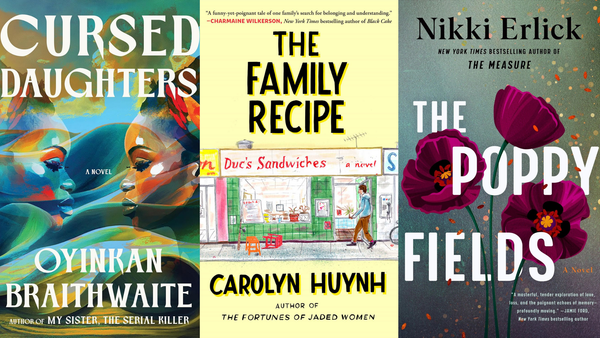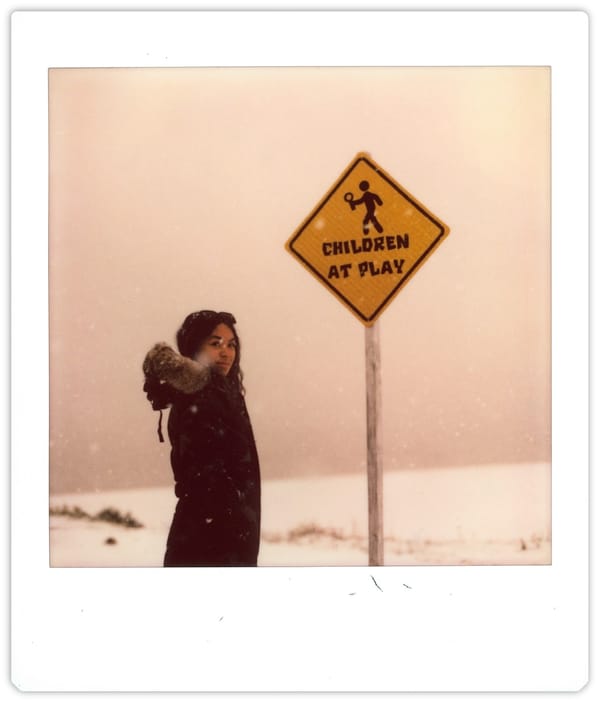Bolo Music Group’s Ouida channels grief, community and self-reclamation
Ouida traces how loss and perseverance shape her artistry, bridging personal healing with music and community.
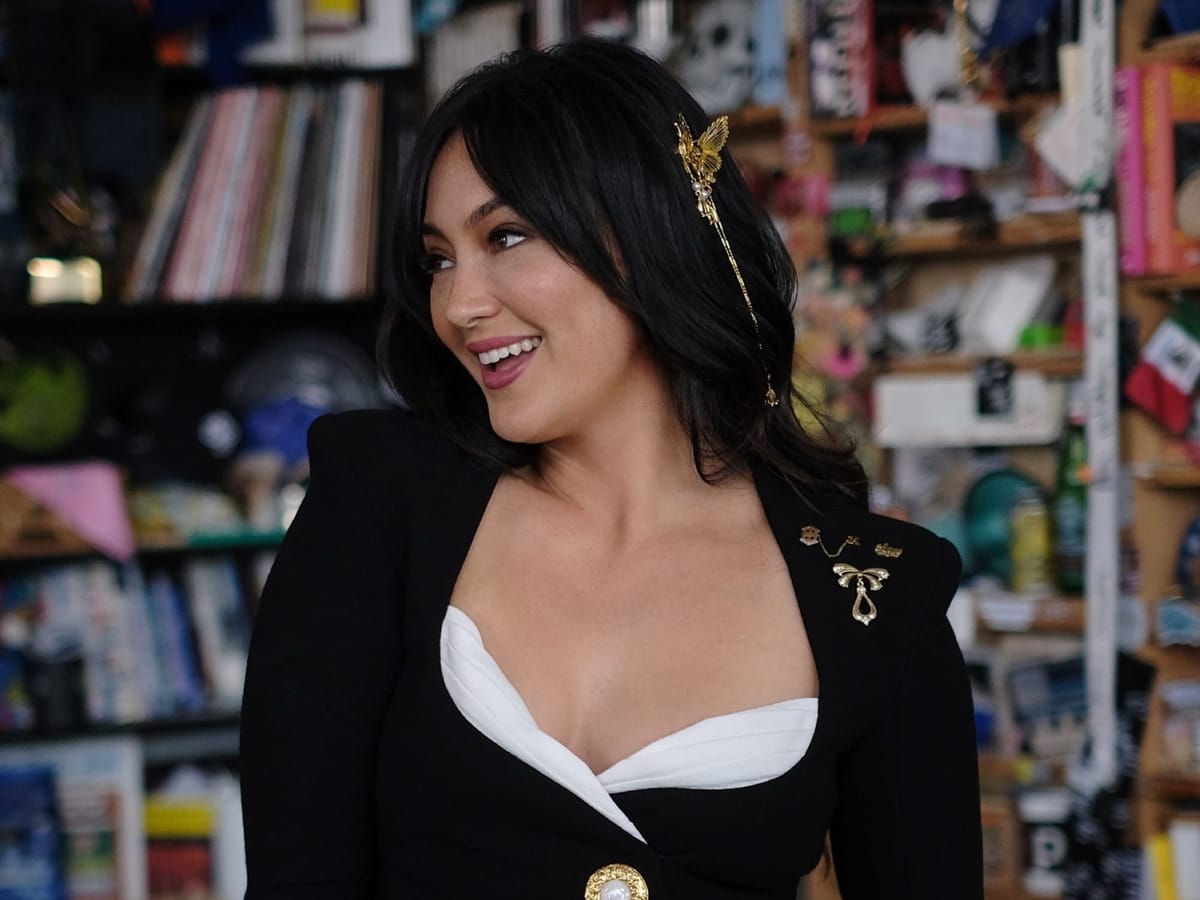
Before the spotlight found her, Ouida found herself in the in-between. The Irish-Filipino singer-songwriter, born and raised in the San Francisco Bay Area, had long been weaving songs. She has a way of making every lyric feel lived in, and in many ways, they are.
Behind each verse is the weight of grief, the pulse of diaspora, the shape-shifting questions of identity that come with being mixed and the deliberate choosing of joy.
She may be best known for her soul-saturated vocals on “Bakunawa,” the breakout track by Filipino American rapper Ruby Ibarra, alongside her collective Bolo Music Group, who won this year’s NPR Tiny Desk Contest. But Ouida has spent the last few years moving through both personal and artistic transformation.
Rooted sat down with Ouida shortly after she wrapped the NPR Tiny Desk Tour. For Ouida, this moment is both exhilarating and intimate, a collision of everything she holds close and everything she’s still learning to let go of. Still fresh from the energy of those performances, we spoke about origin stories and obsessions, artistic rituals, lineage and the invisible labor of healing. What follows is a rare glimpse into the life of an artist learning, in real time, how to carry both grief and truth.
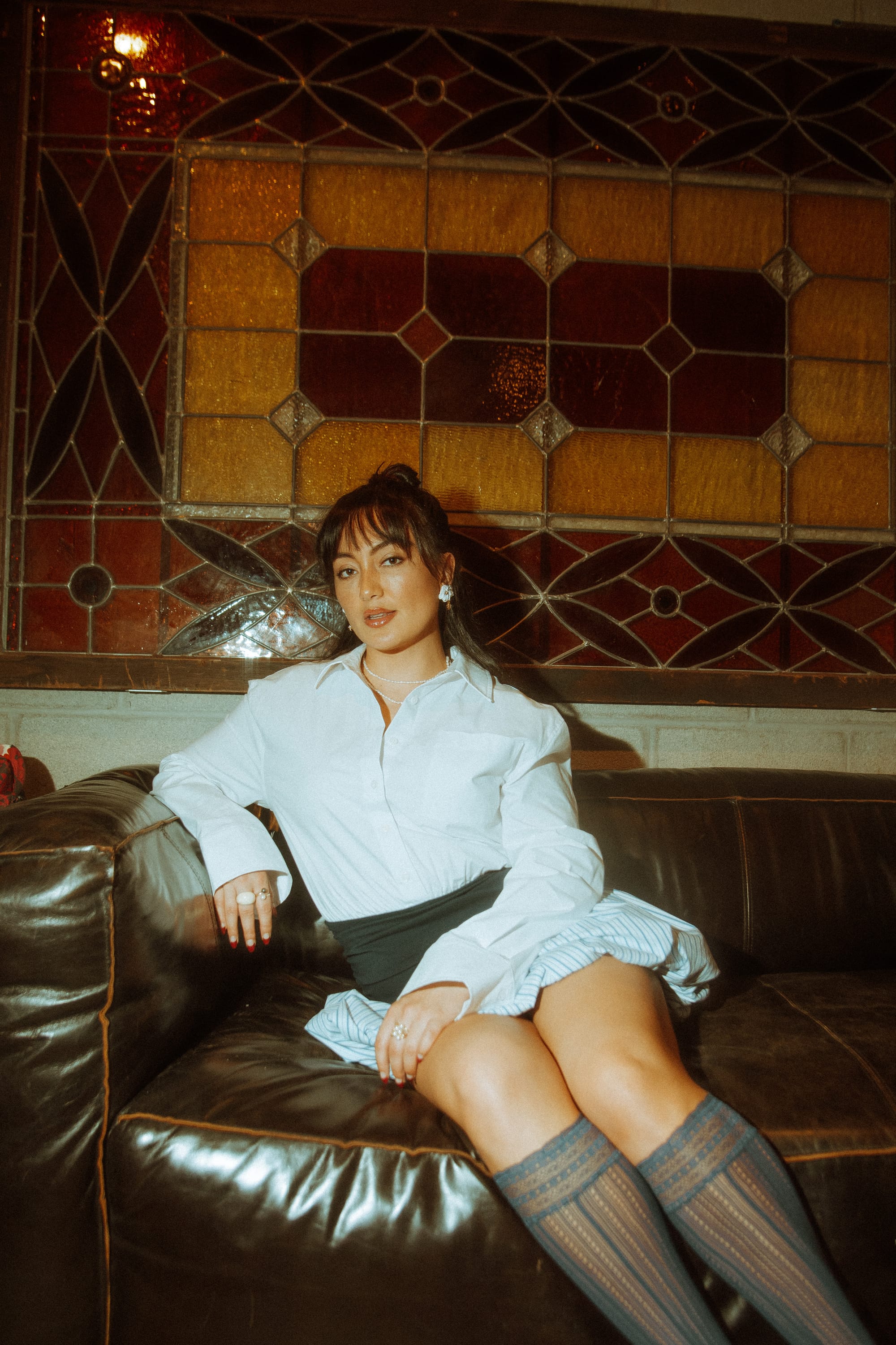
Origins and early creative impulses
In Ouida’s earliest memories, sound lived in the walls. Her childhood home in the Bay Area pulsed with a kaleidoscope of genres, from jazz standards, blues-rock, classic rock, and the occasional Barbra Streisand ballad (which, she admitted with a laugh, never quite stuck).
“There was always music. Before I could name what it was, I already knew how it made me feel,” she said. “I remember hearing 'Bad to the Bone' in the living room, and feeling like I understood the rhythm. When the lyrics came in between the guitar riffs, singing along to that, it was like having a sing-along kind of experience for the first time.”
Her parents — one Filipino, one Irish — were avid music lovers, curating a household soundscape where rhythm was both inheritance and invitation. She was the youngest of three: her sister a pianist, her brother on viola. In different corners of the house, Ouida said, “It wasn’t just that music was present. It was personal. I saw it being lived.”
While her home carried a mix of musical traditions, Ouida’s cultural identity was more complicated to navigate. Growing up in a predominantly Filipino neighborhood and church, she felt an early alignment with her father’s Filipino culture. When she entered a predominantly white school, the tensions of being mixed race became harder to ignore.
“I was always somewhere in between. But music gave me permission to belong. And grief pulled the mask off,” she said. “Music gave me the language to say what I didn’t want to admit out loud.”
Her debut EP, “Come Rain, Come Shine,” was a threshold. Written and recorded in the wake of her father’s passing, the EP became a vessel for the grief she hadn’t yet processed.
“There was so much anticipatory grief leading up to his passing,” she said. “I just threw myself into the music after. I needed something to hold the weight of it.”
The song “For the Show” sits at the core of that offering. It’s her most transparent, most stripped-back track, a confessional about the dangers of performing resilience while silently unraveling.
“It’s truly unmasking for me,” she said. “It traces these spaces of being really sure of myself, how I’m coping, being tough on the outside. That thick skin that’s supposed to get me through the difficulties of pursuing a career in music.”
But under the armor, the truth bled through. In the writing of that song, Ouida captured what many refuse to name: the lonely, nonlinear shape of grief. “My body’s first response was: make something. Honor him. Prove that I could finish what we started,” she said.
And yet, in trying to prove she was strong enough to carry it all, she also exposed the cost of refusing vulnerability. “For the Show” became her unmasking. A song that admits to both the drive to succeed and the ache of doing it without the person who first taught her to love music.
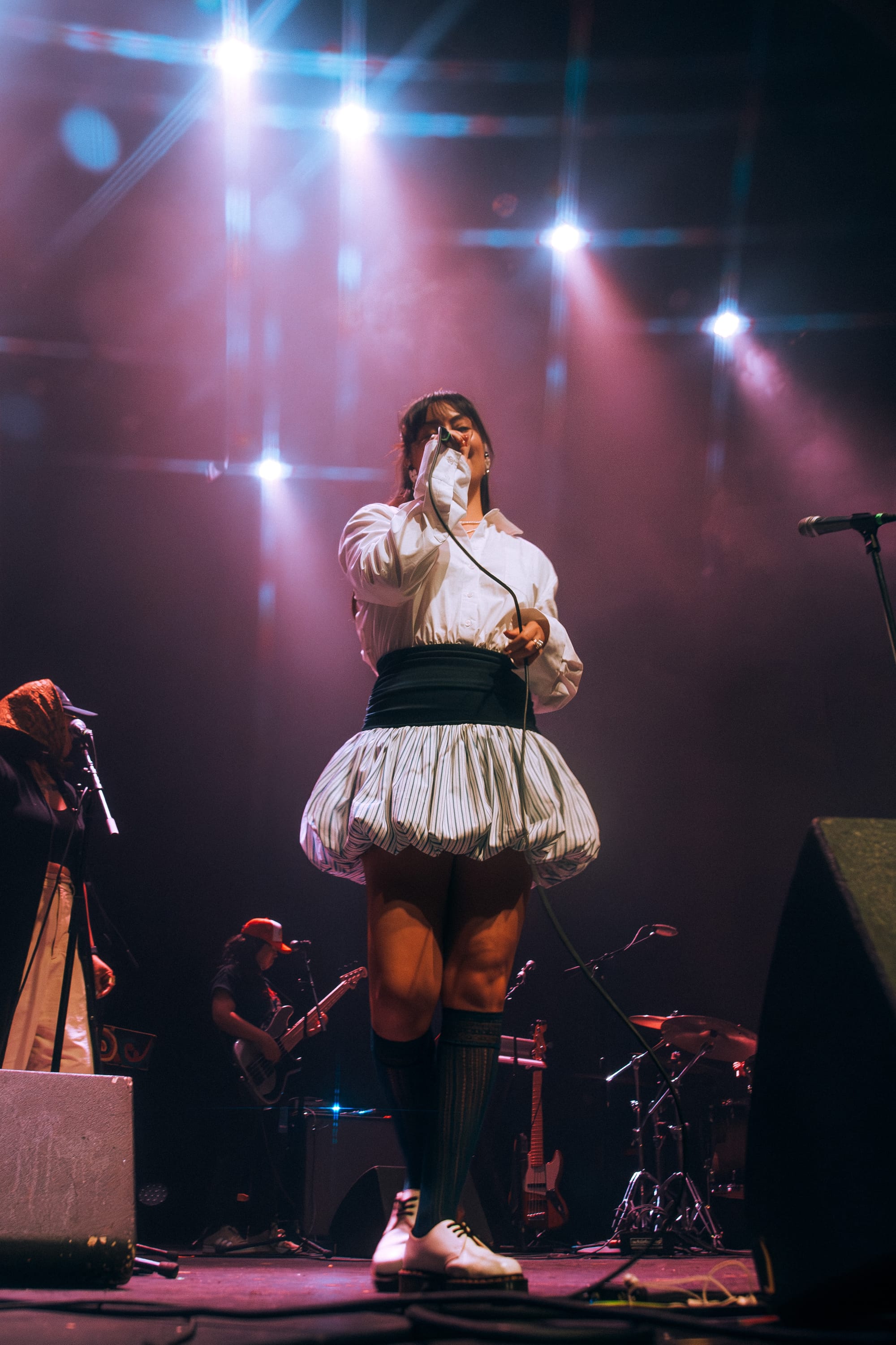
Creative process and artistic growth
Ouida’s process hasn’t been rewritten by the spotlight. It’s only clarified.
Much of her sound is built on emotional honesty, filtered through the deep muscle memory of her earliest musical language: piano. She began writing songs at 9 years old.
“They were all piano-based songs built around big feelings I didn’t really have anyone to talk to about,” she said. “That’s still the foundation for my songwriting.”
While her music blends neo-soul, R&B, digital textures and jazz, it all still begins with her voice and a keyboard.
“Even when production becomes more layered, the heart of it is always coming from a live instrument. And I think that helps keep the organic emotion at the forefront. Everything else is there just to support it,” she said.
As her sound matures, so too does her understanding of what she wants to say and how to say it. In 2024, Ouida made an intentional choice to focus on developing her artistry and let herself have fun with the creative process. It was about play, about trusting that creativity, leaving it unforced and yielding something more real.
“There were moments when we wrote a song in ten minutes and it was everything I wanted it to be,” she said. “I let myself write without judgment, try things I wasn’t good at, and pick up instruments I hadn’t touched since high school. Just to see what would happen.”
This shift also brought her back to the core of what music was meant to be in her life, not just for performance or visibility, but for freedom.
“And as much as I feel like, you know, certain themes and messages in these songs are important in their own ways and music should be shared and we create, we create community through music, I also want to remember that for the individual, it's meant to — expression is meant to free something in you,” she said.
All of these laid the groundwork for what’s coming next: a deeply collaborative EP under Bolo Music Group. In a year of play and breakthroughs, Ouida built a community of creative partners who became close friends. But this didn’t shift Ouida’s center. If anything, it strengthened her ability to trust it.
“I’m a lot more decisive now,” she said. “I feel more ready to trust myself, to trust my voice.” Part of this newfound confidence came from repetition: The touring, storytelling, quiet exchanges with audience members who saw themselves in her songs.
“There’s something beautiful about sharing a song and having someone come up to you after, tell you their story because your story gave them permission. I’m realizing more and more that some of these experiences are more universal than I thought,” she said.
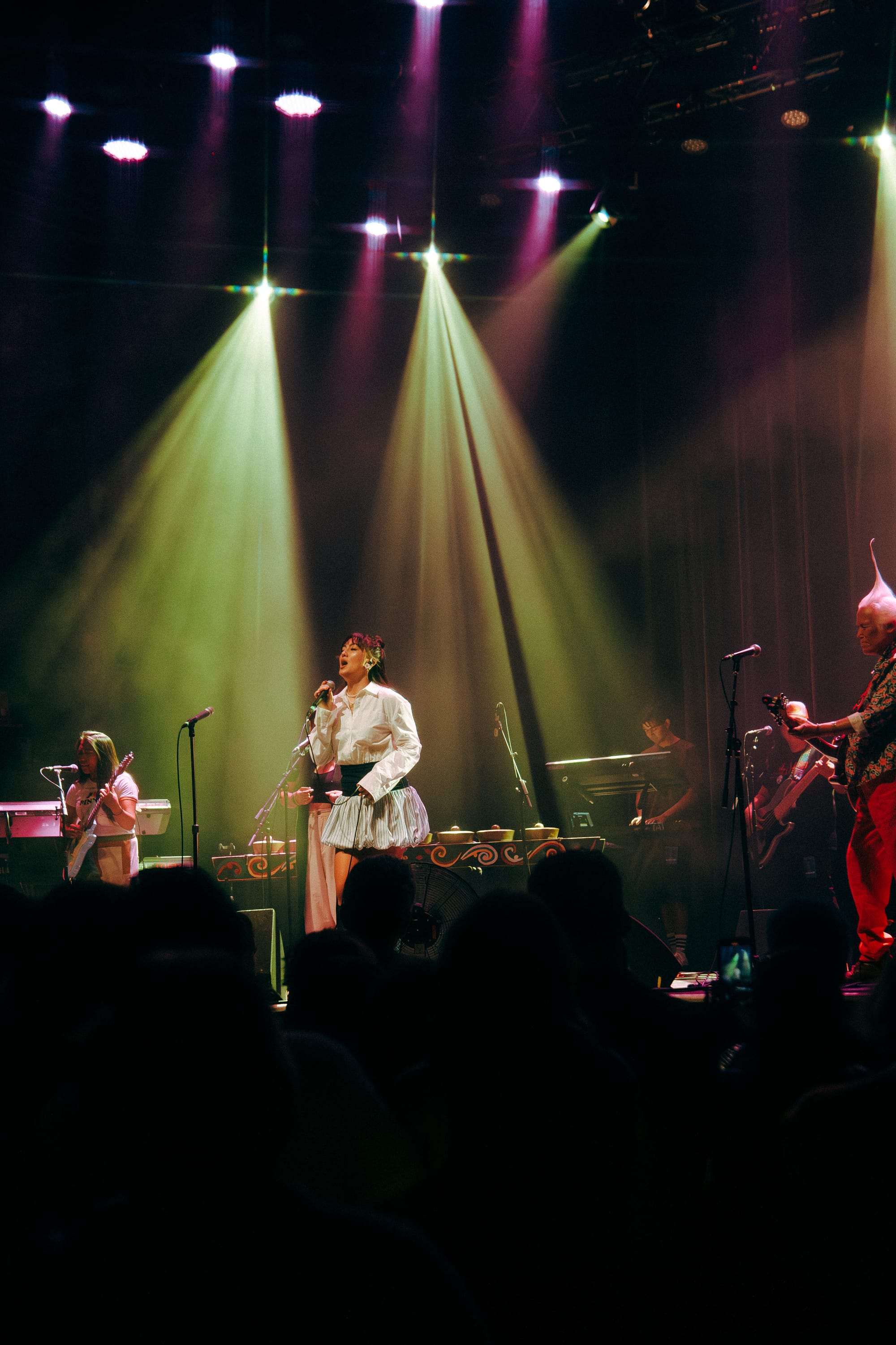
Community, collaboration and belonging
When Ouida speaks about her place in music, she rarely speaks in the singular. For her, art is community — its roots, kinship and shared space. Joining Bolo Music Group helped solidify that.
“I think something really shifted when I started collaborating with other Filipino American artists. For the first time, I wasn’t the only one in the room trying to explain myself,” she said.
Signing with the artist-led label marked more than just a career milestone for Ouida. It was a symbolic homecoming. Before joining the collective, Ouida had been navigating the music industry as an independent artist — self-funding, self-producing and self-releasing since 2020.
“It’s hard. It takes a lot of trial and error and wearing many hats,” she said. “And so being a part of an impact-focused music group, in a sense, where we could really amplify each other's voices and think more critically about the bigger questions and spend less time worrying about the smaller details, was a life-changing idea for me because it was so difficult to do alone.”
That sense of belonging was rooted not only in shared labor but in shared purpose to create equity in the music industry.
“We’re not just trying to create great music. We’re trying to do things differently, thinking about equity from every facet of the music industry,” Ouida said.
Reimagining equity in the music industry carries a heavier cultural weight. Her first single, “Coffee (Ride With You),” was a meditation on Filipino American identity featuring an all-Filipina cast, including Filipinas with mixed cultural identities.
“I think being invited to continue my celebration of my heritage and these experiences as a mixed Filipino person in a predominantly all-Filipino setting is really special and warm and healing for me as well,” Ouida said.
As her career expands, she remains grounded in the inner work that shaped her artistic path.
“This stage I’m on now, I’m meeting it at a time when I know myself better than I ever have before,” she said.
Years of navigating the industry through the exhilarating highs and the harrowing lows taught her the limits of her body and mind and the value of community.
The inside work, she said, continues on stage. Touring with Ruby Ibarra, supporting her set and sharing her own, Ouida sees it all as part of the same continuum.
“It doesn’t feel separate,” she said. “The way we’re doing music — intentionally, in community — is the inside work.”
Reclaiming self
The mythology of the Bakunawa — a serpent that swallows the moon — resonated deeply with the losses she’s endured, from her father’s passing to painful early music industry setbacks.
“Loss and renewal are no strange concepts to me,” she said.
Ouida speaks candidly about the heartbreak of losing her first publishing deal, which stripped her of control over her own catalog, and about having to leave NYU’s Tisch School of the Arts due to financial pressures. These moments tested not only her resilience but her ability to stay rooted in her creative truth.
“I think that song (“Bakunawa”) really resonated with me and when I do sing it and close my eyes, I do imagine parts of my life where I felt those ways, and had to let go of what I thought I was meant to be, or supposed to be, or expected to be, and how I reclaimed my sense of self, and what I want for myself, and how I want to see myself,” she said.
Whether it’s the complexity of her identity or the constant pressure to conform to marketable molds, Ouida sings with the clarity of someone who’s wrestled for her wholeness. She names that experience of wrestling and reclaiming not just as personal, but as inherently political.
“I truly think that by just speaking our own truths, that we’re hopefully making the world a better place,” she said.
She speaks of “The City We Grew Up In,” an unreleased track from her tour setlist, as a kind of love letter to a city in flux. When asked what “home” means to her now, she doesn’t hesitate: it’s still San Francisco. But it’s not just geography. It’s memory, it’s people, it’s loss and loyalty stitched into streets that are changing rapidly.
“Because it’s people that make the place home,” she said. “And even if those people aren’t there anymore, we remember it’s home.”
Looking ahead, Ouida hopes to be a mirror for other mixed diasporic artists trying to carve space in a world that insists on tidy boxes. “And that as much as the rest of the world might want you to fit sweetly into one box, art is about coloring outside of the lines,” she reflects.
“And I think being a mixed race person gives you a nice vantage point to see a view — and see it differently,” she said. “And to recognize that there isn’t just one truth, to recognize that you can have two truths next to each other, two ways of doing something, two ways of seeing the world and bringing those together to create something just as beautiful.”
With another music release forthcoming, Ouida embraces a season of deep self-expression through “candor and cheekiness and vulnerability and questions and lack of answers.” These songs, rooted in San Francisco’s stories and soaked in soul, don’t chase polish. They offer permission instead: to be messy, to be multiple, to be wholly human.
Lifting the mask
And to be wholly human is to live a life off the stage as well. So who is Ouida when the stage is empty, when no one's asking for a song?
She chuckled softly at the question, answering with conviction, “I have a German Shepherd that I love, my little guard dog. I’m playing with him at home. I’m cooking at home. I’m often in sweatpants. I really enjoy food. I like to go into nature. I like to be with my friends. I like to see my mother and my brother.”
Ouida returns to the rhythms of the ordinary. Since the passing of her father during the pandemic, she’s embraced a slower life, one that prioritizes peace, kinship and sanctuary.
“My life is a little less glamorous than it, maybe, used to be in my early 20s,” she said. “But it’s been helpful, beneficial. It’s allowed me to really strengthen my bonds with my family.”
That commitment shows up not only in her relationships but also in her parallel career as an equity consultant dedicated to social justice. There’s a stillness in how she shares that part of her life outside of music, a quiet reverence for the work behind the work. And when asked what she would offer to emerging artists or younger versions of herself, she shared:
"I think it’s important to remember that you’re doing this for art. You’re doing it because it requires something great out of you. And if you can put your heart into it and give it your all, that is the process of becoming. That is the process of art: of expanding yourself and transcending your own ego, transcending the labels that you’ve placed on yourself, the identities you’ve placed on yourself. You come as you are, and you create the art, you share the art, and it takes on a life of its own. It’s more like you’re channeling something through you, rather than you are the origin and creator of this work. It’s like you are a conduit for something greater than yourself. And that’s what art is.”
The real heart of Ouida’s story: beneath the sonic elegance, beneath the technical craft, is someone who is reckoning, returning and remembering. An artist who isn’t just performing her truth, but becoming it.


